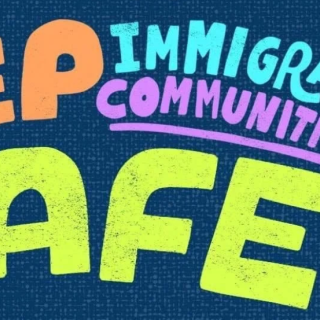Advertisement
As a published author of scholarly and popular writing for more than 50 years, I expect criticism. I’ve received my fair share. But never have my words been described as “trash,” and never have I been criticized with so much disingenuousness, misrepresentation, illogic, and ignorance of the issues at stake. Nowhere do Downing and Oliphint acknowledge that they are throwing stones at a 600-word opinion essay that is by definition limited. No one but Downing and I know that July 26 began with a cordial exchange of emails that were complimentary and, I thought, constructive. I was initiating a conversation with him and other media to promote more responsible, constructive criticism of Columbus and its institutions. I was completely surprised when this rant arrived in my inbox several hours later.
My “critics”—actually “assassins”—begin by announcing a roster of “reasons.” That is readers’ first clue to problems to come. The next two clues are, first, Downing and Oliphant both explicitly and implicitly accept my overarching arguments. Second, their “attack ad” is aimed much more at Columbus Underground, the publisher of “Columbus’ identity crisis and its media,” than at anything I wrote. Further, they weakly and inaccurately defend their fellow USA Today/Gannett publications, the Columbus Dispatch and Columbus Monthly. They admit that Columbus Monthly is a “sister” publication, but they do not acknowledge their relationship to the Dispatch. That is partisan and dishonest.
I write “attack ad” because, at every turn, Downing and Oliphant are engaged in relentless self-promotion of Columbus Alive and unmitigated hostility to Columbus Underground. Apparently, I have unknowingly stepped onto a field of active combat. No doubt it is rooted in competition but the level of animosity exceeds that. They accuse Columbus Underground of the very practices that animate their own publication: showcasing the city and boosterism.
Today’s Columbus Alive bulletin was a stream of restaurant and bar notices. Close review of their site confirms that “Entertainment,” followed by “Art” and “Culture” are their raison d’etre. They assert that Columbus Underground does not “expose injustices and hold city leaders’ feet to the fire.” Neither does Columbus Alive do that. They include little news and even less that is original. When they write that it is “deep irony” that Columbus Underground published my essay, they misunderstand “irony.” Their charge is self-contradictory.
Their screed is also ignorant. I do not believe that they listen to WOSU or read “all magazines” or even the Dispatch. They claim that WOSU “merely defines what a public radio station is and does.” WOSU falls short of NPR aspirations. WOSU endlessly touts its “award-winning local news team,” but exaggerates the award and their ranking. The “large team” does little investigative reporting and almost none on weekends. I speak from my experience working with NPR affiliates across the U.S. since the 1980s. Referring to reporters who left the station in rejection of a toxic work culture supports my point not theirs.
Similarly, the defense of the Columbus Dispatch also ignores the reality. After criticizing me for not providing a list of favorite reporters in a 600-word essay, they assert that Alan Miller’s half-apology for an editor’s referring to “Illegals” in a headline represents “self-criticism.” Miller refused to confront the basic issues (raised by many readers in online comments) and spent more space promoting his diversity trainer. Similarly, Miller recently stumbled over the Dispatch’s crime reporting “standards.” These responses prove that Downing and Oliphint are wrong to state that “these types of self-critical missives aren’t rare, either, and to ignore their existence further undercuts Graff’s argument.” Their rarity, illogic, and failure to confront basic issues, to the contrary, support my thesis. The Dispatch’s lack of a copy desk is a major part of these problems.
About Columbus Monthly, they only deflect. I laughed out loud when reading that in reaction to my comment that the magazine’s content of advertising was high, they write “which is pretty much every magazine, ever.” That’s untrue. I write as a subscriber to a half-dozen magazines and a lifelong reader. As with all these failed defenses, Downing and Oliphint demonstrate their lack of familiarity with the objects of criticism and the basic issues.
In the end, what Downing and Oliphint demonstrate convincingly is their refusal to understand and practice journalistic standards and basic journalistic ethics. Beyond that, I can only imagine the level of fear and insecurity that fuels their attack on me and the media organization that published my essay. I urge readers to read my essay before passing judgment.



